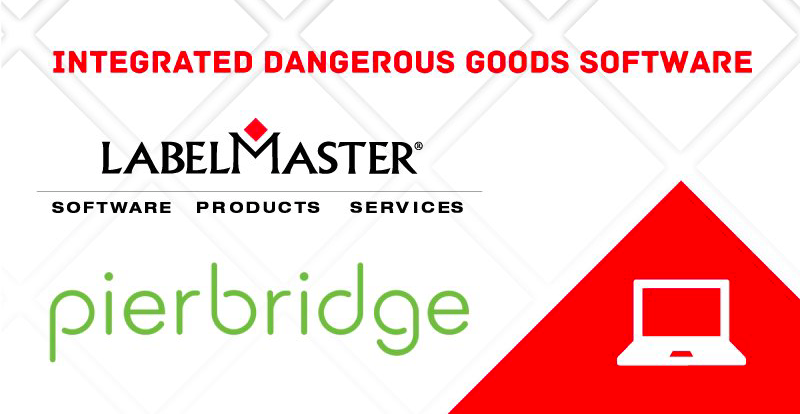Labelmaster, the leading provider of labels, packaging and technology for the safe and compliant transport of dangerous goods and hazardous materials (hazmat), announced that it has integrated its Dangerous Goods Information System (DGIS) with Pierbridge’s Transtream parcel transportation management system(TMS). The combined solution enables Pierbridge customers to streamline the shipping process of dangerous goods while ensuring compliance with the latest Department of Transportation (DOT) regulations.
Pierbridge’s parcel TMS platform, Transtream, helps retailers, manufacturers and distributors automate supply chain processes across their enterprise, control shipping costs and improve delivery. Transtream supports hazmat rating, labeling and shipping for parcel carriers such as UPS, FedEx, DHL and regional carriers. In addition to carrier compliance, DGIS web services will now enable Transtream shipping app users to comply with mandated DOT labeling and paperwork.
“By integrating Transtream with DGIS, our customers can automate and control hazmat compliance for multiple carriers without having to learn multiple user interfaces,” said Bob Malley, CEO of Pierbridge. “This partnership will help our customers improve operational efficiency.”
In addition to helping Pierbridge customers more efficiently and accurately manage their multi-carrier shipping processes, DGIS validates all dangerous goods data against the latest rules and regulations, reducing the chance for a rejected shipment or fines and helping maintain a smooth supply chain.
“Shipping dangerous goods involves complex rules and regulations that are constantly changing, so ensuring compliance can be challenging and time-consuming for shippers,” said Alan Schoen, president of Labelmaster. “Integrating DGIS with Transtream will save customers time by having the information available in a single window when they have a dangerous goods shipment. Pierbridge customers can be confident that they are compliant with the latest regulations – reducing the chance for a rejected shipment which can cause delays and disrupt the supply chain resulting in significant waste and expense.”
